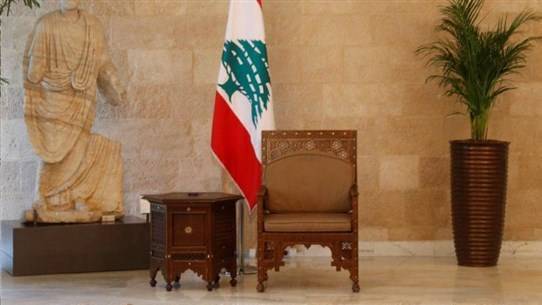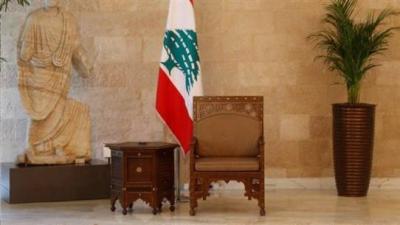The "Shiite duo" is hesitating to reveal its presidential cards. The meeting between Hezbollah's Secretary General, Hassan Nasrallah, and political advisor to President Nabih Berri, MP Ali Hassan Khalil, following a visit by the leader of the Free Patriotic Movement, Gibran Bassil, confirms that Hezbollah is practically formulating a presidential strategy and seeks to start from within the domestic sphere before expanding further. Despite the dedicated sessions for electing a president in the Parliament, there is no serious discussion yet regarding the presidential elections, according to sources from the Shiite duo. Internationally, countries are divided, with some feeling comfortable and refusing to expose their strategies prematurely, and others rushing to gain advantages, while a third party remains hesitant. Locally, candidates continue to shy away from announcing their candidacies until alliances within the Parliament clarify.
The sources observe that there is no serious will from any party to retreat from its position or articulate it more clearly without addressing the regional and international environment. Everyone is still in the first phase of maneuvering. From now until the beginning of the upcoming year, the situation will remain stagnant. Each party will seize the opportunity to assert its position and establish its principles, aiming to present itself to public opinion in the desired light, even without any anticipated outcome. This is a phase of reinforcing sectarian identities among Christians, with each side attempting to score points against its political rival.
The current concern of the "Free Patriotic Movement" is to reject voting with a blank paper at present, while another group is focused on maintaining the quorum in the second session, but there is no serious approach to the presidency yet. Everyone is in need of everyone else, yet dialogue among them is absent. Even Hezbollah will need to engage with others when the moment of truth arrives, starting with its ally, the head of the Free Patriotic Movement. Bassil's rejection does not close the door on the candidacy of "Maronite Movement" leader Sleiman Franjieh, nor does it eliminate his chances, albeit they are currently slim. Meanwhile, the Amal Movement is adopting a different strategy from the last session, where Hezbollah pressured them with the option of Aoun, leading to continuous deadlock until Aoun won through an internal and external settlement, yet Amal did not elect him and insisted on its candidate, the leader of the Maronite Movement.
The choice for this session remains the same, but a definitive decision has yet to be made; primarily because the announcement of a candidacy "must come from the candidate himself for us to support it, and secondly because we and Hezbollah want him to be a president, not just a candidate." In the meantime, Franjieh remains silent and is holding back his frustration over Bassil's remarks, which constantly express rejection of his candidacy, as if someone has advised him to stay silent until Bassil fully understands the situation. The mere fact that the duo does not have an alternative candidate to Franjieh so far means that he will remain their candidate, but the clock for serious work has not started yet.
On the international and regional fronts, the duo is observing a renewed focus on Lebanon. It is clear that Lebanon is not a priority for any country at the present time, from the cautious Americans who are merely watching from afar, to the French, whose sources claim that the whole world is politically and economically distressed. The countries most comfortable with their situation, particularly in the Gulf region, and especially Saudi Arabia, have not yet clarified their vision. Saudi Arabia has a central role in the presidency, and its conditions are articulated through the movements of its ambassador in Lebanon, Walid Bukhari, even if they are not officially announced, but they are high expectations.
For the first time, observers note that Saudi Arabia is talking about a President and a Prime Minister, meaning it has entered into negotiations regarding both mandates. It is also not in a haste and wants to take its time until the relationship with Iran clarifies, the Iranian-American negotiations progress, and the results of the American congressional elections are known. This indicates that it is comfortable with its situation and is not rushing to reveal its cards early, unlike the French, who are hastily making promises wherever they go. According to a prominent Lebanese official who met with him days ago, French President Emmanuel Macron admitted that he rushed his handling of the Lebanese file in the manner he did, where he prioritized emotional logic, while the Lebanese issue could have been managed better. In his view, Macron's remarks reveal that the French had no clear strategy for dealing with the Lebanese file. They opened their doors to everyone without being able to play a useful role. The cautious international handling of Lebanon will continue, making it difficult to anticipate any developments related to the presidential office before the next year, which also suggests that Lebanon faces difficult months ahead before serious movement on both local and international levels.




